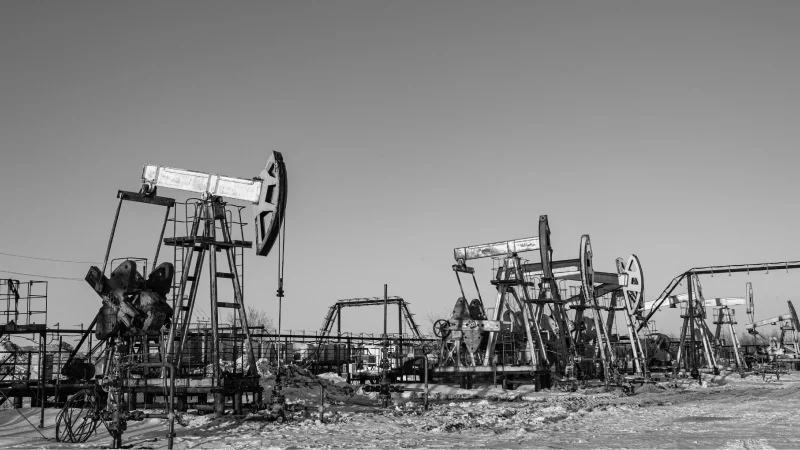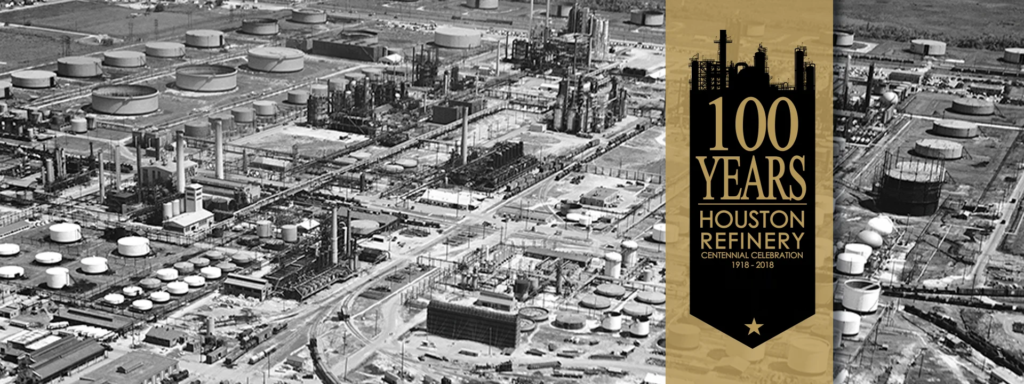Houston, often referred to as the “Energy Capital of the World,” has a rich history intertwined with the oil industry. The rise of oil tycoons has played a pivotal role in shaping the city’s economy, infrastructure, and culture. This article delves into the influential figures of the oil boom, their contributions to Houston, and the lasting impact they left on the city and its residents.

The Birth of Houston’s Oil Industry
The origins of Houston’s oil industry can be traced back to the early 1900s, following the discovery of oil at Spindletop in Beaumont in 1901. This monumental event marked the beginning of the Texas oil boom and laid the groundwork for Houston’s emergence as a significant player in the oil industry. The discovery prompted a massive influx of entrepreneurs, investors, and workers seeking fortune and opportunity.
By the 1910s, oil companies began establishing operations in Houston, leading to rapid economic growth. The establishment of the Houston Ship Channel in 1914 further facilitated the transportation of oil and goods, positioning the city as a key hub in the petroleum industry. As a result, the foundations were laid for Houston to become the epicenter of oil production and refining in the United States.

The Rise of Oil Tycoons
Among the key figures who shaped Houston’s oil legacy are a handful of influential tycoons whose wealth and ambition propelled the industry forward. These men were not just business leaders; they became symbols of American enterprise and innovation.
Hugh Roy Cullen
One of the most notable figures in Houston’s oil history is Hugh Roy Cullen, a self-made millionaire who played a significant role in the development of the Texas oil industry. Cullen founded the Cullen Trust for Higher Education, which has provided millions of dollars in funding for various educational institutions in Texas. His philanthropic efforts have left a lasting mark on Houston’s educational landscape.
Cullen’s influence extended beyond the oil fields; he was instrumental in the establishment of several major Houston institutions, including the Houston Endowment and the University of Houston. His legacy continues to impact the city today, as his contributions have helped shape the educational and cultural fabric of Houston.
George P. Mitchell
Another titan of the oil industry is George P. Mitchell, who is often credited with pioneering hydraulic fracturing, a technique that revolutionized natural gas extraction. Mitchell’s innovative methods not only transformed the oil industry but also contributed to the economic growth of Houston and the surrounding areas.
His vision extended beyond just oil production. Mitchell was an advocate for environmental conservation and sustainable development, demonstrating a commitment to balancing industry with ecological responsibility. He was also a significant contributor to the arts and education in Houston, supporting various cultural initiatives and organizations.

The Economic Impact of Oil Tycoons
The influence of oil tycoons on Houston’s economy is undeniable. Their investments fueled the growth of countless businesses, created jobs, and attracted talent from across the country and beyond. The oil boom led to the development of a robust infrastructure, including roads, schools, and hospitals, all of which contributed to the city’s rapid expansion.
A Hub for Industry
The oil industry’s growth solidified Houston’s status as a global energy hub. Major oil companies, such as ExxonMobil, Chevron, and Shell, established their headquarters in the city, creating a ripple effect throughout the economy. This influx of corporate giants has fostered a diverse job market, drawing professionals from various fields, including engineering, finance, and environmental science.
The city’s economy has evolved to include a blend of industries, but the oil and gas sector remains a significant contributor. The legacy of the oil tycoons is evident in the skyscrapers that dominate the Houston skyline and the bustling economic activity that defines the city today.
Philanthropy and Community Impact
Beyond their business acumen, many oil tycoons were deeply committed to philanthropy. They recognized their responsibility to give back to the communities that supported their ventures. This spirit of generosity has left a lasting impact on Houston.
Supporting Education and the Arts
Oil tycoons like Cullen and Mitchell invested heavily in education, healthcare, and the arts. Their contributions have enabled the establishment of numerous educational institutions, scholarships, and community programs that continue to benefit Houston’s residents.
Moreover, these tycoons have supported the growth of cultural institutions, including museums, theaters, and performing arts centers. Their philanthropic endeavors have enriched the cultural landscape of Houston, making it a vibrant city that celebrates diversity and creativity.
The Legacy Lives On
The legacy of Houston’s oil tycoons is complex and multifaceted. While they played a significant role in the city’s economic development and growth, their impact extends beyond the boardroom. The contributions of these individuals have shaped the identity of Houston, making it a unique blend of innovation, culture, and resilience.
As Houston continues to evolve in the 21st century, the lessons learned from its oil history remain relevant. The city is embracing new energy technologies and exploring sustainable practices, but the foundation laid by its oil tycoons will always be a part of its narrative.
Remembering the Pioneers
The oil tycoons of Houston are more than just historical figures; they are pioneers whose vision and determination helped shape the city we know today. Their legacies serve as a reminder of the transformative power of entrepreneurship and philanthropy. As Houston looks toward the future, it will continue to honor the contributions of these influential individuals while forging its path in the ever-changing landscape of the global economy.